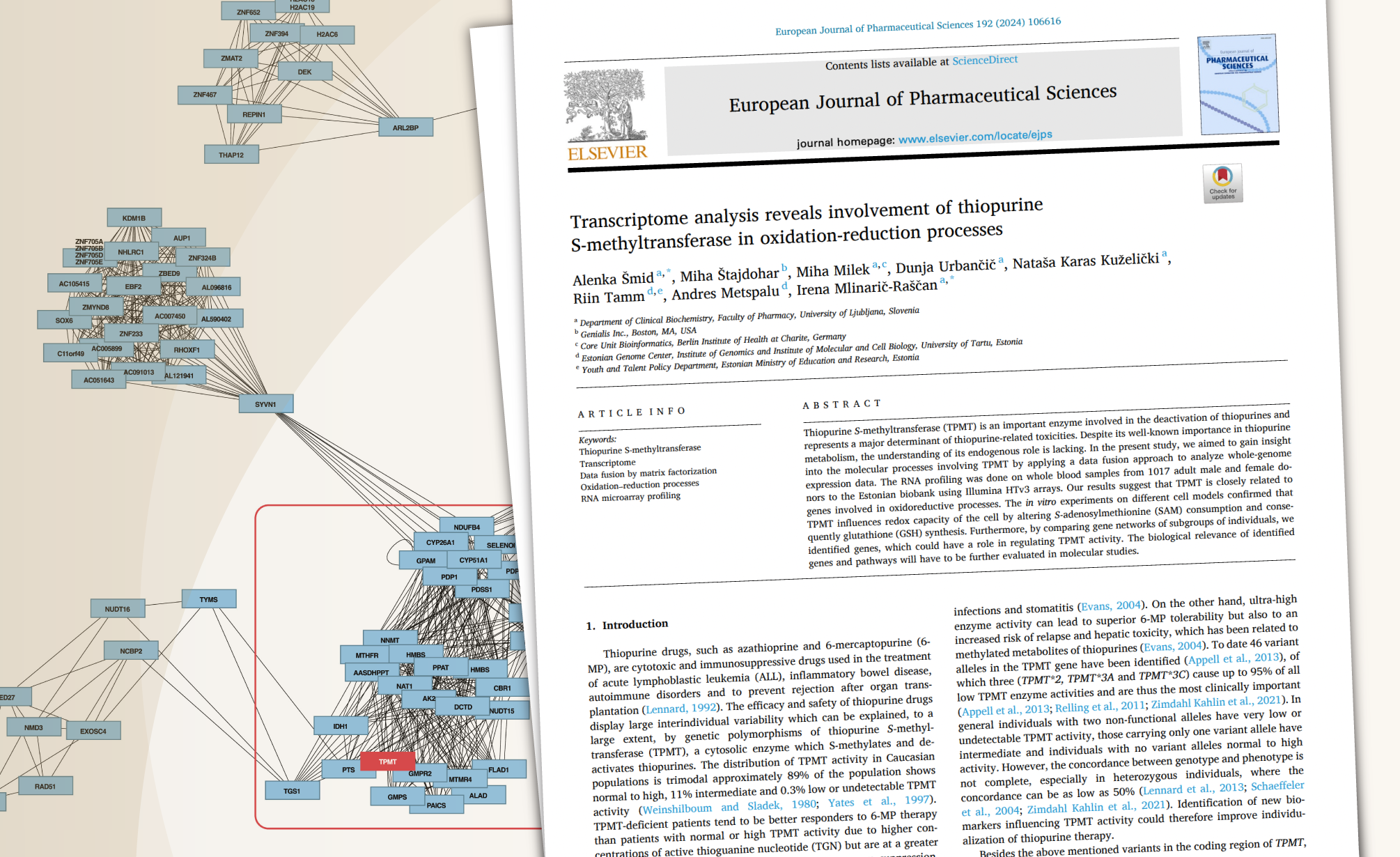Abstract:
Thiopurine S-methyltransferase (TPMT) is an important enzyme involved in the deactivation of thiopurines and represents a major determinant of thiopurine-related toxicities. Despite its well-known importance in thiopurine metabolism, the understanding of its endogenous role is lacking. In the present study, we aimed to gain insight into the molecular processes involving TPMT by applying a data fusion approach to analyze whole-genome expression data. The RNA profiling was done on whole blood samples from 1017 adult male and female donors to the Estonian biobank using Illumina HTv3 arrays. Our results suggest that TPMT is closely related to genes involved in oxidoreductive processes. The in vitro experiments on different cell models confirmed that TPMT influences redox capacity of the cell by altering S-adenosylmethionine (SAM) consumption and consequently glutathione (GSH) synthesis. Furthermore, by comparing gene networks of subgroups of individuals, we identified genes, which could have a role in regulating TPMT activity. The biological relevance of identified genes and pathways will have to be further evaluated in molecular studies.
Published in European Journal of Pharmaceutical Sciences (January, 2024)
Alenka Šmid1, Miha Štajdohar2, Miha Milek1,3, Dunja Urbančič1, Nataša Karas Kuželički1, Riin Tamm4,5, Andres Metspalu4, Irena Mlinarič-Raščan1
1 Department of Clinical Biochemistry, Faculty of Pharmacy, University of Ljubljana, Slovenia
2 Genialis Inc., Boston, MA, USA
3 Core Unit Bioinformatics, Berlin Institute of Health at Charite, Germany
4 Estonian Genome Center, Institute of Genomics and Institute of Molecular and Cell Biology, University of Tartu, Estonia
5 Youth and Talent Policy Department, Estonian Ministry of Education and Research, Estonia

